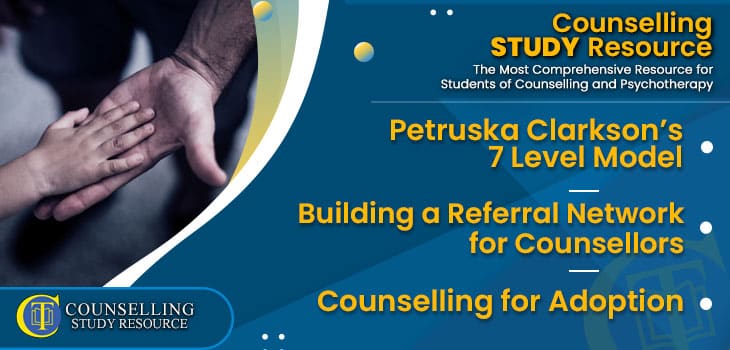See Counselling Skills Used in Real Sessions by Qualified Therapist
Real Sessions – Real Presentations – Real Skills
Gain the competence and confidence to use counselling techniques effectively!

In Episode 247 of the Counselling Tutor Podcast, your hosts Rory Lees-Oakes and Ken Kelly are back with this week’s three topics:
Petruska Clarkson’s Seven-Level Model
Petruska Clarkson’s 7 level model is not a hierarchy, but 7 things to keep in mind equally when working with a client.
The key points of this section include:

Real Sessions – Real Presentations – Real Skills
Gain the competence and confidence to use counselling techniques effectively!
A great long-term way to gain clients is through referrals. In this section, Rory and Ken will discuss the ways you may go about building a referral network, and some important things to remember during the process.
The main points of this discussion include:

On-demand access to a rich lecture library covering theory, skills, and professional development for counselling students—Mapped to the UK awarding body criteria
“The Student Library has been BRILLIANT, I can’t recommend it enough!
It has been a lifeline in helping me prepare for practice and my first clients. If you’re considering it, go-for-it, it’s absolutely worth it!”
Kelly – Graduated and now in practice.
In this week’s ‘Practice Matters’, Rory speaks with Sam Shiel on working with adoption in the therapy room.
The key points of this discussion are:
Petruska Clarkson’s Seven-Level Model

Get on-demand Certified CPD that is implementable in your practice
